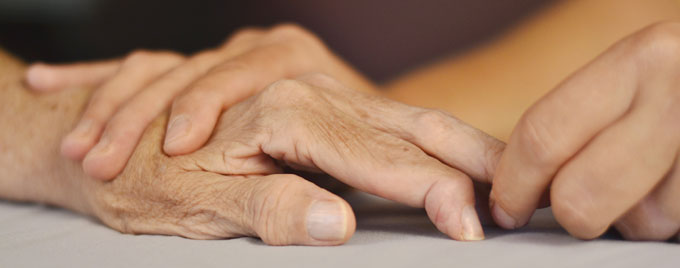Learning to live with rheumatoid arthritis
If you have rheumatoid arthritis, you’re one of more than 400,000 people in the UK living with it — it’s the second most common type of arthritis. Women are two to three times more likely to get it than men and it usually develops between the ages of 40 and 60 — though people can get it at any age.
Many people think that arthritis is a condition that is only caused by wear and tear on the joints. While that’s the case for osteoarthritis, rheumatoid arthritis is actually caused by the immune system not working properly.
If left untreated, the pain and stiffness caused by rheumatoid arthritis can make it hard to do day to day activities comfortably, and eventually, it can cause permanent damage to your joints. But there are treatments available to help you manage any discomfort and slow its progress, so you can lead a normal life.
What is rheumatoid arthritis?
Rheumatoid arthritis is an autoimmune condition, which means your body’s immune system mistakenly attacks your healthy tissues. In the case of rheumatoid arthritis, your immune system attacks your joint linings. This causes swelling and inflammation of your joints, which makes them feel painful and stiff.

What symptoms to look out for
Rheumatoid arthritis usually affects joints on both sides of your body and most often starts in your knuckles and fingers. The main symptoms to look out for are:
- Feeling unusually tired
- Pain and swelling around your joints
- Stiffness in your joints first thing in the morning
- Stiffness in your joints after sitting for a while
The pain and stiffness you feel in the morning or after sitting for a while can take a few hours to go away. The tiredness that some people feel has been linked to anaemia, as well as the challenge of living with pain every day.
What causes it?
It isn’t yet known exactly what causes rheumatoid arthritis. Certain genes can increase your risk of the condition but don’t absolutely mean you will develop it. Rheumatoid arthritis can also be triggered by a virus, an infection or a stressful life event. Smoking also increases your risk.
What treatment options are there?
The treatment options available today mean that having rheumatoid arthritis doesn’t have to lead to disability.
While there isn’t a cure at the moment, the condition can be controlled with medication so you can lead a full and active life. Your rheumatologist, a doctor specialising in treating arthritis, will help minimise your pain and stiffness. You’ll most likely be prescribed DMARDs (disease-modifying anti-rheumatic drugs) to slow down the progression of your disease.
It’s important to speak to your GP if you think you have rheumatoid arthritis. If it’s not treated, it can cause irreversible damage to your joints. As it affects people in different ways, you may not have exactly the same symptoms as someone else who has the condition. But in all cases, early treatment is best.
Living with rheumatoid arthritis
As well as medication, there are a number of lifestyle changes that can help you live with rheumatoid arthritis.
Staying active is important. Keeping fit and healthy will help limit the progress of the condition. You should try regular light exercise, stop smoking if you’re a smoker and take steps to lower your cholesterol.

Exercise
Different types of exercise will help. Strength training, such as light weight training or bodyweight exercises, will help develop the muscles around your joints and make them stronger.
Cardiovascular exercise, like jogging, cycling or walking, are good for your immune system and will help reduce the inflammation in your joints. They will also help you maintain a healthy weight and lower your cholesterol. Swimming and cycling are good choices as they put less pressure on your joints.
Emotional support
Don’t neglect looking after yourself emotionally too. It’s normal to feel scared, frustrated or depressed when facing any type of arthritis.
Turn to your family and friends. Make the most of the emotional and practical support that they can offer you. You may also want to think about seeing a counsellor or psychologist, to help manage your feelings about your condition.
Pace yourself
Finding the right balance between work, rest and play will help make the most of the energy you have. As symptoms of rheumatoid arthritis can come and go, it can be tempting to do too much during a good spell and risk your symptoms flaring up later.
Build up your exercise slowly, gradually increasing how long you exercise for and the intensity. Try to stick to a plan, so you’re not tempted to overdo it on any given day. A plan will also encourage you to exercise regularly. This will help your body adapt and minimise your risk of injuring yourself.
Finally, don’t forget to look after the basics. Eating well and getting enough sleep will help you feel at your best, and minimise the impact the condition has on your day to day life.
We hope you've found this article useful, however, it cannot be a substitute for a consultation with a specialist
If you're concerned about symptoms you're experiencing or require further information on the subject, talk to a GP or see an expert consultant at your local Spire hospital.
Need help with appointments, quotes or general information?
Enquire onlineView our consultants to find the specialist that's right for you.
Find a specialist